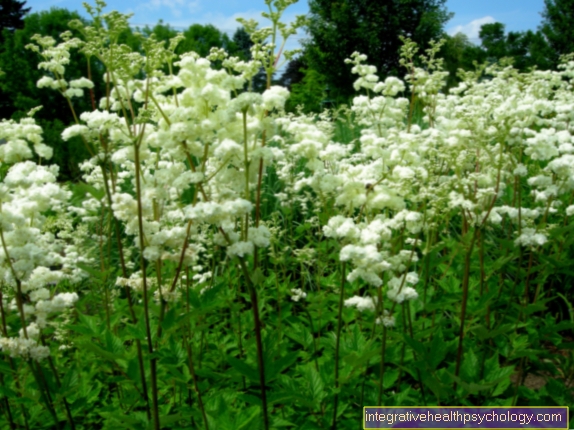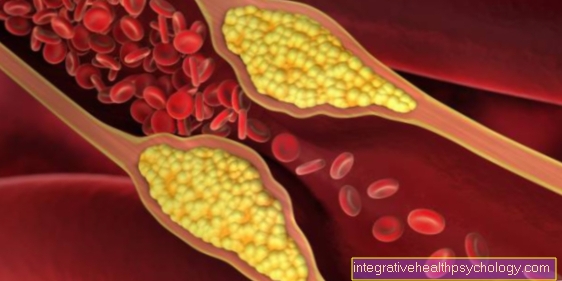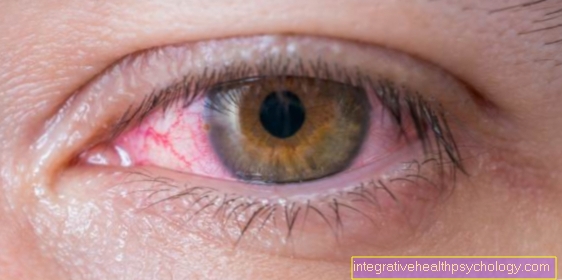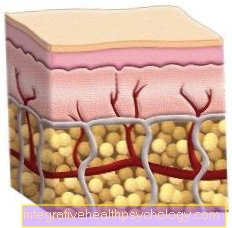White teeth from baking soda
introduction
Hollywood stars exemplify it, people with gleaming white teeth are always smiling at us on posters and advertising also promises a gleaming white smile with many different means, almost overnight.

More and more people are looking for the easiest, best and cheapest way to make their teeth lighter. Can Using Baking Soda Help?
Read more on the topic: How do you get white teeth?
Note on caution!
Baking soda is able to whiten teeth. Nevertheless, the use of baking soda for teeth whitening is definitely not recommended! Discoloration can be removed quickly, but the aggressive, abrasive (removing) effect of the powder does not stop at the tooth enamel. This is also attacked and dismantled. The gums are also irritated and can become inflamed or retracted. So the tooth is weakened.
Problems that occur with frequent use of baking soda include:
- Increased susceptibility to tooth decay
- Irritated / inflamed gums
- Exposed tooth necks
- Weakening of the tooth enamel
- Pain when consuming sour and sweet foods
- Roughening of the tooth and thus easier adhesion of dental plaque
functionality
That contained in baking powder Sodium hydrogen carbonate, baking soda for short, is also a component in many teeth whitening toothpastes, as it is abrasive in order to remove discoloration, etc. All toothpastes contain abrasive particles, which act as small cleaning particles to clean the tooth.
If the baking powder is now mixed with water, a foam is created that grinds the tooth from the outside and begins to remove the surface dirt particles.
Think of it like sandpaper.
Alternatives
Special toothpastes for teeth whitening are usually better suited for use, as the abrasive bodies they contain are less strong and aggressive. They can be used on a daily basis and remove superficial removal to some extent, such as those caused by smoking, coffee or even tea. But even these can cause problems for people with sensitive gums. Also, some of the toothpastes that promise white toe contain microplastic particles, which are extremely harmful to the environment.
Read more on the topic: White teeth from toothpaste
Other home remedies, such as using lemon juice or brushing your teeth with normal commercially available salt, are more likely not to be used because, like baking powder, it is more likely to damage the tooth and the grain is too coarse. The protective enamel must be preserved in any case.
Read more on the topic: White teeth through home remedies
The safest methods, if you want healthy white teeth that keep their color permanently and are also possibly less aggressive to the tooth enamel, are those that you discuss and use with your trusted dentist. These are of course a lot more expensive than the home remedies mentioned, but they do not harm dental health to the same extent.
The dentist uses more concentrated whitening agents, so that one session is sufficient for some procedures. The agent is applied to the teeth and activated. The resulting oxygen now bleaches the teeth.Alternatively, splints can also be used in which the bleaching agent is filled beforehand and which the patient then puts in their mouth. One speaks of whitening.
Read more on the topic: White teeth from whitening
The composition of baking soda
Baking powder is used every day in the kitchen for baking. It is a leavening agent that is produced by the evolution of carbon dioxide (CO2) can increase the volume of a dough. Often one says: "The cake is rising.“
Baking soda is a mixture of a source of carbon dioxide, mostly Sodium hydrogen carbonate or Potassium hydrogen carbonate, and an acidic agent, often Disodium dihydrogen diphosphate or Monocalcium orthophosphate. Alternatively, there is natural baking powder that uses citric acid, tartaric acid or potassium tartrate as the acid content. A release agent is also added, which binds the moisture and prevents the premature development of carbon dioxide. Corn or rice starch or wheat flour take on these tasks. They are also available flavored with vanilla.
If you put a dough mixed with baking powder in the warm oven, the baking soda reacts with the acid, releasing carbon dioxide. Small gas bubbles loosen the dough. Baking powder, invented since 1833, has become an indispensable part of every good bakery today and is also said to be good for the teeth.
Summary
Baking soda is not a useful or recommended method for teeth whitening.





























